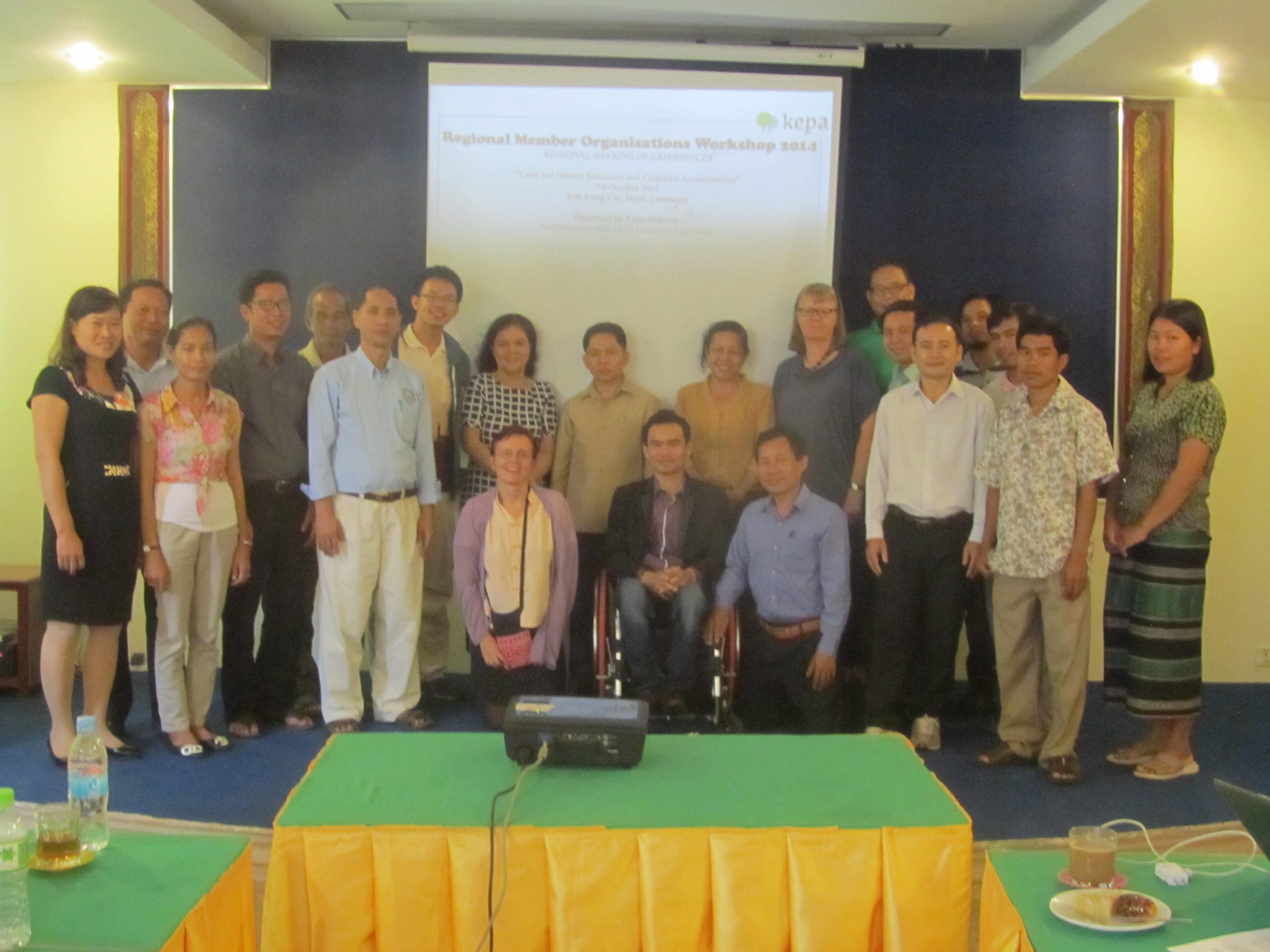However, this is increasingly not the case, as more and more natural resources are becoming privatized and commercialized in different forms. They are putting pressure on the basic rights of people especially the poor and the vulnerable as well as resulting in related problems such as deforestation, water pollution, health problems, forced eviction, and land conflict.Building on the success and positive feedback of the previous year, Kepa Mekong, in partnership with NGO Forum on Cambodia (NGOF), decided to hold the second regional workshop in Koh Kong Province, Cambodia between 7-9 October 2014. The theme for this year was “Land and Natural Resources Grabbing and Corporate Accountability.”***The main objective of the workshop was to provide a space for Kepa’s member organizations and their partners to learn from one another, share experiences and build a network for future cooperation.“Although Vietnam is an agricultural country, farmlands are being turned into residential and industrial developments. This transition comes in the name of development”, said Mrs. Nguyen Thi Minh Tam, Coordinator of Coalition for Environment and Development (CED) Programme in Vietnam.In Vietnam there are some ongoing campaigns for land rights, but often such campaigns are deemed illegal given the political environment and their impact is small.“The 2012 political shift brought about a dramatic change in land ownership”, said Mr. Win Kyaw Kyaw, Information and Communication Officer from Myanmar Center for Responsible Business. In Myanmar some of the lands previously belonged to farmers have been seized by companies working for or related to the new government.***In order to get a better glimpse of potential solutions, the workshop looked at land and natural resources issue through both contemporary and historical lens. While the workshop had a specific focus on the Mekong region, it touched also on the international and inter-governmental levels.The workshop was designed to elevate the participants beyond the realm of problems and direct them to concentrate more on the solutions. The regional expertise and experiences were key to achievement of this goal and many innovative initiatives as well as inspiring anecdotes were presented.We believe in regional learning, regional exchange and regional cooperation. We believe that the ideas crystalized as well as the network built in the workshop will continue to empower participating organizations in their work. A more detailed version of workshop’s highlights can be read on Kepa Mekong webpage.

Regional solutions to land grabbing?
Every man has the right to life and to live it with dignity. The rights to land, water and forest are the most basic rights and the most minimal conditions in sustaining one’s life. Every human being should be able to access and enjoy them.
Teksti: Nattawat Theeralerttham